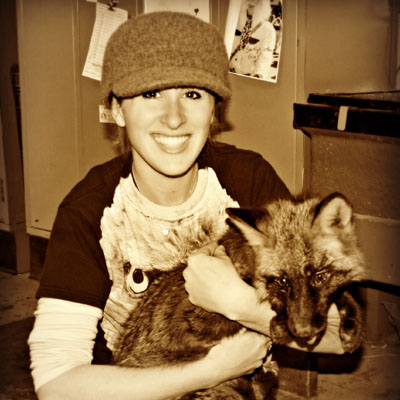I spent the five happiest years of my life in a morgue. As a forensic scientist in the Cleveland coroner’s office I analyzed gunshot residue on hands and clothing, hairs, fibers, paint, glass, DNA, blood and many other forms of trace evidence, as well as crime scenes. Now I'm a certified latent print examiner and CSI for a police department in Florida. I also write a series of forensic suspense novels, turning the day job into fiction. My books have been translated into six languages.
I'm afraid not. I'm guessing that would depend entirely on how large the bandage is and how much the person bled. Best of luck!
At a guess, I would suggest: slash marks that are too wide for a knife, some partially healed, would indicate animal claws inflicted at different times, but none deep enough or near vital arteries to cause bleeding out. Then water in the lungs would indicate drowning, though that is not always a definite indicator. Drowning is an elimination diagnosis, as in you eliminate other possible causes.
That’s more of a question for detectives, since ‘solving ‘ the case is their responsibility—I’m just there to provide forensic support. But in the cases I’ve been involved with, luck is of course a huge factor.
Generally bodies in the water decompose more slowly than bodies exposed to air, but more specifically than that I cannot tell you. I did find this: https://digital.library.txstate.edu/handle/10877/4078
It's really a pathology question and not my area. Also colder temperatures will cause slower decomposition than warmer temps.
I definitely can't answer your second question but also, are you asking a) how long the person lived as a sailor b) how long the person was in the water before the hand was cut off or c) how long they might have survived in the water after the hand was cut off (assuming they had no access to a tourniquet and such like)? If you could locate someone who worked as a ship's doctor they might be a big help.
Best of luck!!
Professional Gamer
 Is the stereotype of gamers as overweight dudes living in parents' basements accurate?
Is the stereotype of gamers as overweight dudes living in parents' basements accurate?
Zookeeper and Animal Trainer
 Are a lot of people in your line of work vegetarian/vegan?
Are a lot of people in your line of work vegetarian/vegan?
Zookeeper and Animal Trainer
 Why are some people so protective of endangered species?
Why are some people so protective of endangered species?
A good way to get a handle on the situation is to look at online job postings from places where you might want to work--the local police department, the county morgue, the state crime lab. They will post the duties and requirements for each position. You can also check the same information on the websites of professional organizations such as the American Academy of Forensic Sciences or the International Association for Identification. That should give you a good start.
Every agency will have their own requirements depending on the position and their preferences. For crime scene or to work in an evidence dept, a criminal justice major may be fine. If you can find a forensic science program that may be great. There is no one answer because it depends what positions they have at each agency.
Sure, you can email me at Lisa-black@live.com.
-OR-
 Login with Facebook
Login with Facebook (max 20 characters - letters, numbers, and underscores only. Note that your username is private, and you have the option to choose an alias when asking questions or hosting a Q&A.)
(A valid e-mail address is required. Your e-mail will not be shared with anyone.)
(min 5 characters)
By checking this box, you acknowledge that you have read and agree to Jobstr.com’s Terms and Privacy Policy.
-OR-
 Register with Facebook
Register with Facebook(Don't worry: you'll be able to choose an alias when asking questions or hosting a Q&A.)